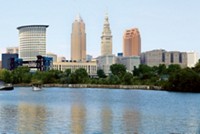Advertisement
Grab your lab coat. Let's get started
Welcome!
Welcome!
Create an account below to get 6 C&EN articles per month, receive newsletters and more - all free.
It seems this is your first time logging in online. Please enter the following information to continue.
As an ACS member you automatically get access to this site. All we need is few more details to create your reading experience.
Not you? Sign in with a different account.
Not you? Sign in with a different account.
ERROR 1
ERROR 1
ERROR 2
ERROR 2
ERROR 2
ERROR 2
ERROR 2
Password and Confirm password must match.
If you have an ACS member number, please enter it here so we can link this account to your membership. (optional)
ERROR 2
ACS values your privacy. By submitting your information, you are gaining access to C&EN and subscribing to our weekly newsletter. We use the information you provide to make your reading experience better, and we will never sell your data to third party members.
Climate Change
Are we ready for change?
by Bibiana Campos Seijo
June 15, 2019
| A version of this story appeared in
Volume 97, Issue 24
If you haven’t already done so, I’d like you to read our cover story on page 30. Why, you ask? Because it tells the story of the 1969 fire on the Cuyahoga River, which flows through the industrial section of Cleveland.
The river had been acting as a free sewer for mills, manufacturing plants, and factories in its vicinity. At the time, this unlimited discharge of wastewater was a commonplace and widely accepted activity not only on the Cuyahoga but across waterways throughout the US.
But the public had had enough, and the blaze in 1969 became a symbol of the environmental movement in the country, sparking protests and urging lawmakers to act. The fire ultimately inspired the formation of the Environmental Protection Agency at the end of 1970 and the enactment of the Clean Water Act in 1972.
The article contrasts the fire with today’s environmental challenges, which do not have the same visibility as the fire and thus fail to inspire action. It quotes James R. May, a law professor and environmental policy expert, as he opines that “people don’t care as much” about the environment as they did 50 years ago, partly because we spend more time indoors and plugged into electronic devices.
By contrast, our roundup of the American Chemistry Council’s annual meeting on page 24 notes a prediction by Chris Cardinal, a director at the consulting firm PwC, who said, “I think the populace is ready for a change” when it comes to the environment. Interestingly, although the plastics crisis was one of the issues that dominated the conversation at this and last year’s get-togethers, companies embraced plastics recycling about a decade ago only to then cool on the idea in response to fluctuating oil prices, according to Cardinal.
The changing commitment to tackling this important environmental issue is particularly noticeable in the US, “where economics often trump social value,” the article states. But according to Cardinal, millennials are willing to pay more for plastic bags and biodegradable materials. This assertion is somewhat backed by the results of a survey that was presented during the ACC meeting suggesting that more than half of respondents—consulting firm Accenture surveyed more than 6,000 individuals from 11 countries—would pay more for sustainable products designed to be reused or recycled.
So which one is it going to be: Are we “ready for a change” and willing to take action regarding climate and the environment? Or do we really not care so much, and will we passively wait for the world around us to deteriorate while we increasingly immerse ourselves in a parallel digital reality? I’m on the side of action and welcome initiatives like that of British daily newspaper the Guardian. In May, its leaders took the decision to update its style guide to “introduce terms that more accurately describe the environmental crises facing the world.” The publication is committed to reporting on threats to our world and to raising awareness of the effects of daily exposure to chemical contamination.
As a result of this decision, instead of “global warming,” “climate skeptic,” and “climate change,” for example, its reporters will now use “global heating,” “climate science denier,” and “climate emergency, crisis, or breakdown,” respectively, in their coverage. In addition, they will include information about carbon dioxide levels in their weather pages so the public is reminded of the effect that human activity is having on our climate.
We need to live up to the expectation that inspired the pollution controls introduced after the 1969 Cuyahoga fire—the expectation that society will act on ecological challenges. Action is the only real option.
Views expressed on this page are those of the author and not necessarily those of ACS.



Join the conversation
Contact the reporter
Submit a Letter to the Editor for publication
Engage with us on Twitter